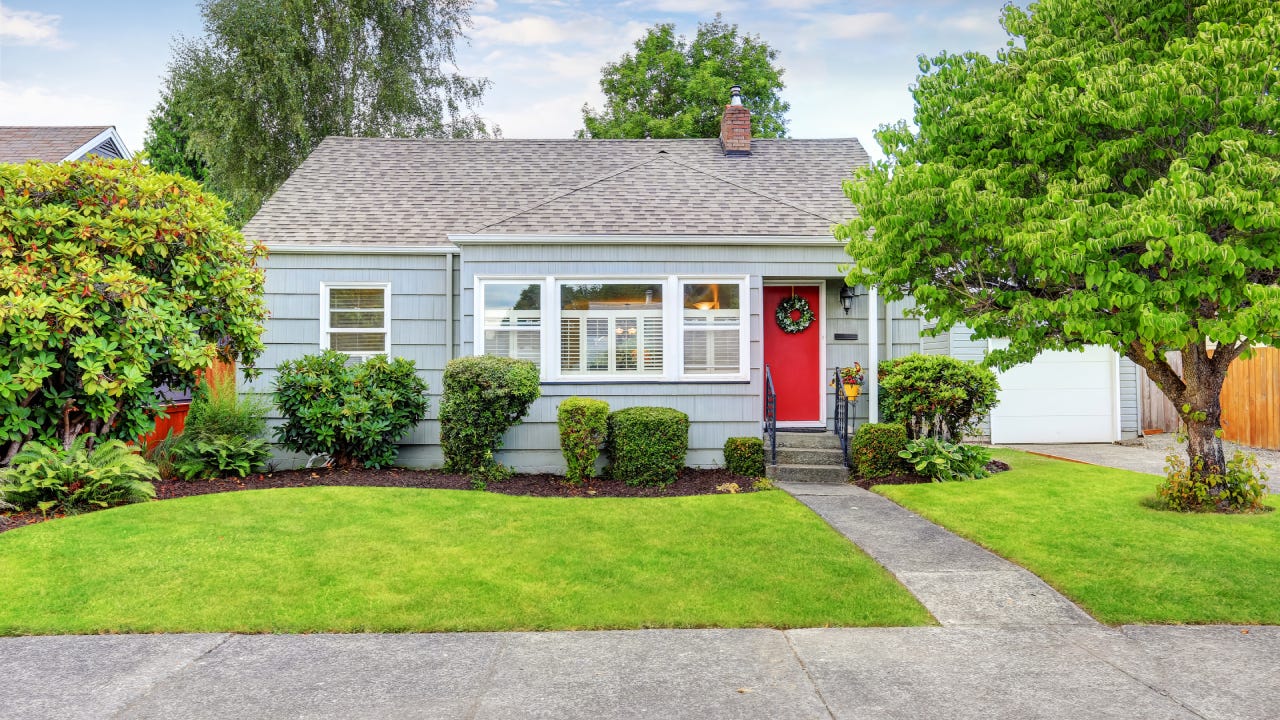Is 600 a good enough credit score to buy a house?

Some home loan options are specifically designed for borrowers with less-than-perfect credit — so technically, yes, 600 can be a good enough credit score to buy a house. However, you may face a few hurdles on the way to homeownership, including higher interest rates and additional costs. Read on to understand what having a 600 credit score means for homebuyers, and why it might be wise to try to up that number before you start house hunting.
What credit score do I need to buy a house?
Your credit score is one of the primary factors that mortgage lenders will look at when considering your application. To buy a house, the lowest credit score you can have and still potentially qualify for a mortgage is 500: FHA-backed loans might approve applicants with a credit score as low as 500 as long as they can make a down payment of at least 10 percent of the purchase price. If your score is 580 or higher, you only need to put down 3.5 percent.
It’s easy to look at those numbers and assume that 600 is a good credit score. After all, it’s a lot higher than 500. However, 600 falls into the “fair” category for FICO scores, and for the Vantage Score 4.0 model, a 600 is at the upper edge of “poor” territory.
For the lowest rates and best deals from most lenders, you would need a much higher credit score — 760 or greater. Data from Fannie Mae shows that most first-time homebuyers are fairly close to that mark: The average credit score for first-time buyers is 746.
What types of loans can I get with a 600 credit score?
You will not be able to qualify for a conventional loan with a credit score of 600: They require a minimum score of 620. However, there are other options to consider:
- FHA loans: Federal Housing Administration loans have more flexible qualifying standards. With a 600 credit score, this type of loan is likely your best bet — and you could qualify to put down just 3.5 percent of the home’s purchase price.
- VA loans: If you’re an eligible service member, veteran or military spouse, VA loans could be an option. While lenders typically prefer a credit score of at least 620 for these, they technically have no minimum credit score requirement, so you may still qualify if the rest of your finances are in good shape.
- USDA loans: United States Department of Agriculture loans typically require at least a 640 to qualify, but there is no blanket minimum requirement. However, there are specific income limits and the home you buy must be in a qualifying rural area.
How does a 600 credit score impact how much house I can afford?
No matter what your credit score is, the number has big implications for your homebuying ability. Lower interest rates go to those with higher scores, which impacts how much you’ll pay in interest every month — the lower your score, the higher your rate is likely to be.
With a 600 credit score, you’ll need to be prepared for some higher mortgage rates. And FHA loans, which is what you’re most likely to qualify for, require mortgage insurance, which will add even more to your monthly payments.
Let’s say you want to buy a home that costs $300,000. With a 10 percent down payment on a 30-year fixed loan at a rate of 6.5 percent, your monthly principal and interest payments would come to $1,706, according to Bankrate’s mortgage calculator. The same loan at an interest rate of 7.5 percent would up that monthly payment to $1,887 — a difference of $181 per month, or more than $2,000 per year.
Of course, your credit score isn’t the only consideration when it comes to calculating how much you can afford to spend on a house. Lenders will also evaluate your monthly income and weigh that against your monthly debt load — called a debt-to-income ratio — as well as other factors.
How can I improve my credit score?
With a 600 credit score, you have plenty of room for improvement. And it pays to get that number up, because the higher your score is, the more you can save. Here are a few tips on how to get there:
- Never miss a payment: A lender wants to know that your mortgage payments will be made on time. With that in mind, show them that’s your regular habit with the rest of your debt: Set a reminder for all your bills, or set them to auto-pay, to ensure everything is paid on schedule.
- Lower your credit card debt: Lenders prefer to see a low credit utilization ratio, which means that you are far away from maxing out your credit cards. For example, if you have a credit limit of $20,000 and your outstanding credit card debt is $15,000, your credit utilization ratio is 75 percent — a warning sign that you might be overspending and stretching yourself too thin. Improve the ratio by paying off your credit cards or requesting a credit limit increase, which has a similar effect.
- Maintain the status quo with your credit lines: As you prepare to apply for a mortgage, avoid opening any other new loans or credit cards. And don’t close any of your old accounts, either. Lenders like to see stability, and the length of your credit history is important. Even if you aren’t using a card on a regular basis, it’s part of your credit history, so it’s worth hanging on to (at least until your home purchase is complete).
Next steps
If you have a 600 credit score, your next step should be focusing on improving that number. It won’t happen overnight, so take some time to develop a strategy to pay down your credit cards and look like a responsible borrower in the eyes of lenders. If that’s not an option, start looking into FHA loans, which have lower credit score requirements than conventional loans do. When you’re ready, find a real estate agent who can help you navigate the local housing market in your area while staying within your budget.
FAQs
-
Yes, you can buy a house with a 600 credit score — but it would be less challenging if your score were higher. A 600 score will not be high enough to qualify for a conventional home loan, so look into FHA loans, which have lower requirements: 500 with a 10 percent down payment, and 580 with a 3.5 percent down payment.
-
If you have a 600 credit score, you might be better off waiting to buy a house until you can improve that number. The higher your score, the lower the mortgage rate you’ll qualify for, and in today’s high-rate environment, you stand to save a lot of money. It’s smart to take some extra time to improve your credit score before you apply for a mortgage.
-
Many financial experts recommend adhering to the 28/36 rule of home affordability, which advises spending no more than 28 percent of your monthly income on your housing costs and 36 percent on your total debt costs, including housing.
Why we ask for feedback Your feedback helps us improve our content and services. It takes less than a minute to complete.
Your responses are anonymous and will only be used for improving our website.
You may also like

What are unconventional personal loans?

How to buy a house with bad credit




